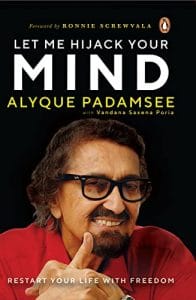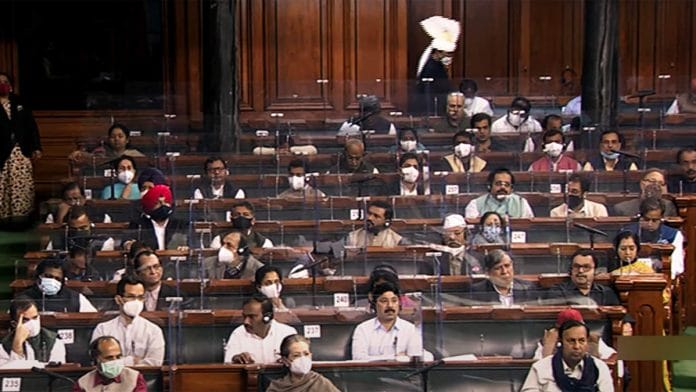Look at the world. All around the world, we are taught to honour people around us. If they are older, or if they are a doctor, a teacher, a priest, a parent. Honour, honour, honour.
Let me tell you that honour in India is the biggest con. Like honouring your mother and father. What is the point of that? You only honour your mother and father if you believe they deserve that honour. But putting it down as a requirement that you must do this is totally wrong. I didn’t honour my mother when I decided to marry Pearl, who was a divorcee with two children . . . In the old days, that was considered heretical. There is nothing heretical about that in today’s age, everything has turned on its head and has a purpose . . . because I never looked at it that way. I fell in love with a girl, we separated for a while, and when she came back into my life, I was still in love with her. When I broached this topic with my parents, particularly my mother, she was horrified; she just could not accept it. And again, there are things like karma. My mother said, ‘It’s not in your karma.’ I said, ‘How can you know what my karma is?’ Which also horrified her. She said, ‘I know because I’m older than you and wiser than you.’
Thank goodness Priyanka Chopra’s mother was more accepting when she brought home someone ten years younger than her. Now that’s progress and good for them.
Vandana says that her children have taught her as much as her parents did. I too have learnt so much from my four children. So really, who should be honouring whom?
Here’s a story which shows our wonderful side and also how we are still slaves in our heads. An American friend was in India for a year and travelled all over the country. At the end of his journey, he came and had dinner with me. And I said, ‘Joe, give me a one-line description of India.’
He said, ‘One line? Impossible.’ I said, ‘Please, an insight of some kind.’ He said, ‘I’ll tell you Alyque, wherever I travelled, I found the people of India were wonderful. They are hospitable, even if he’s a farmer in a field and only sharing two rotis among his family. If I visit him at his home, he will tear one roti in half and give it to me. We all know that. Hospitality, generosity . . . akalmand [he had already learnt the word!] . . . very intelligent people and so on.’ He said, ‘My one line would be, the Indian nation is a First World country. The Indian government is a Third World government. Why your wonderful people are allowing this to happen, when there’s so many of you who could challenge it, is
beyond me.’
And we continue to be slaves because we have been brought up not to be demanding and to follow rules left, right and centre. Vandana’s work concentrates on why our mindsets are the way they are and why we have an overdose of patriarchal, hierarchical thinking. From her research, the biggest problem that shows up is that from childhood we are subconsciously taught to obey rules without questioning them. So many people blame the education system for the lack of thinking ability, but she firmly believes it starts at home when you are not allowed to question anything and decisions are made for you instead of by you. As a result, you grow up to be people who are like robots, following a system, rather than individuals who are critical thinkers and have the guts to think afresh.
Also read: 1993 UP election was India’s attempt at secularism. A mutiny in the police almost ruined it
For heaven’s sake, how can you be, if you have never had the opportunity to question anything? Think about it. You have to ask your father for money to, I don’t know . . . go out, buy anything, even go to college. They’re always reluctant, unless it is about getting a good education so you can earn more. And our fathers are never questioned. What they DICTATE has to go in the house. Even when you’re married and have children of your own!
The lack of thinking gets worse at school. Students tell Vandana all the time that teachers hate it when students disagree with them. And students are not allowed to question anything at most schools or higher education institutes. Which of you has ever had the nerve to ask a professor in college, ‘Excuse me Sir, if you say India is a democracy, please tell us in what way?’ But we don’t. We never ask those questions in class, neither in school nor in college. And certainly, never at our workplace. I mean to go to the boss and say, ‘I think the bathrooms in our office are terrible!’ You’ll find that you will have a demotion or a bye-bye letter on your desk within a day.
We are not used to demanding or being demanding, and it is time Youngistan began to exert those rights. India is a country which is taking its place in the world, on the world stage, in real terms: the economy. Unfortunately, on the social front, no, we are not. But I am sure that young India will be able to move us forward if they start working out what they should honour and what they should not. I am NOT saying be rude to parents or seniors. Far from it. I am just saying that be open-minded, that what they are saying may be in their best interest, as they understand it, but not in yours.
Also read: Ask Rahul Gandhi about Emergency and he calls it a ‘mistake’. And Modi is ‘fascist’
The open truth: we are slaves of the media
There are people we can touch and see like our family and friends, and then there’s a whole world outside that the media tells us about. We think we know them, even though we have never met them, whether it’s Donald Trump or movie stars or people in your line of business that you’ve never met. And it is in that world that we begin to worship another set of false gods. We think of a model or actress, ‘How fantastic, she’s the most beautiful woman in the world.’ But she is not. She is fed to us by the media. Just like these businesspeople who are anointed as hugely successful by the media powers that be. Not all of it is true: the media tends to build up myths about stars, giving people more due than their worth (or less, depending on who is greasing whose palms!).
All movie stars have publicists, and businesspeople have their PR teams whose job it is to build them into a star and have you, the unsuspecting media consumer, following them wherever they go.
In addition to the traditional media, there is now also social media which is adding to the chaos. Its advent has no doubt created a more democratic medium, but some would say that there is too much choice out there now. But there are good things too—I’m quite surprised that my daughter Shazahn doesn’t read a newspaper, nor my son Quasar either. He says all the news comes through apps on his phone. ‘I get much more variety and I’m very happy with it,’ he tells me. ‘Now I can read whatever I want to read, from different places, rather than what one particular paper forces me to read.’
Whichever source it is from, many of us spend our lives talking about a vast number of people that we actually don’t know personally but through our smartphones. And we read second-hand opinions of them from multiple sources to form our own (often entirely incorrect) opinion. We even talk to our friends as if we’ve been best friends with that celebrity because we think we know so much about them. They enter our life as uninvited guests, and before we know it, we become hooked on to a celebrity. If the celebrity is wearing the colour purple this year, we will subconsciously buy purple. Or buy the food they advertise. Or buy the car they drive. The media is good at getting you to give up two things: your mind-space (time) and your money!
 This excerpt from ‘Let Me Hijack Your Mind’ by Alyque Padamsee with Vandana Saxena Poria has been published with permission from Penguin Random House.
This excerpt from ‘Let Me Hijack Your Mind’ by Alyque Padamsee with Vandana Saxena Poria has been published with permission from Penguin Random House.






